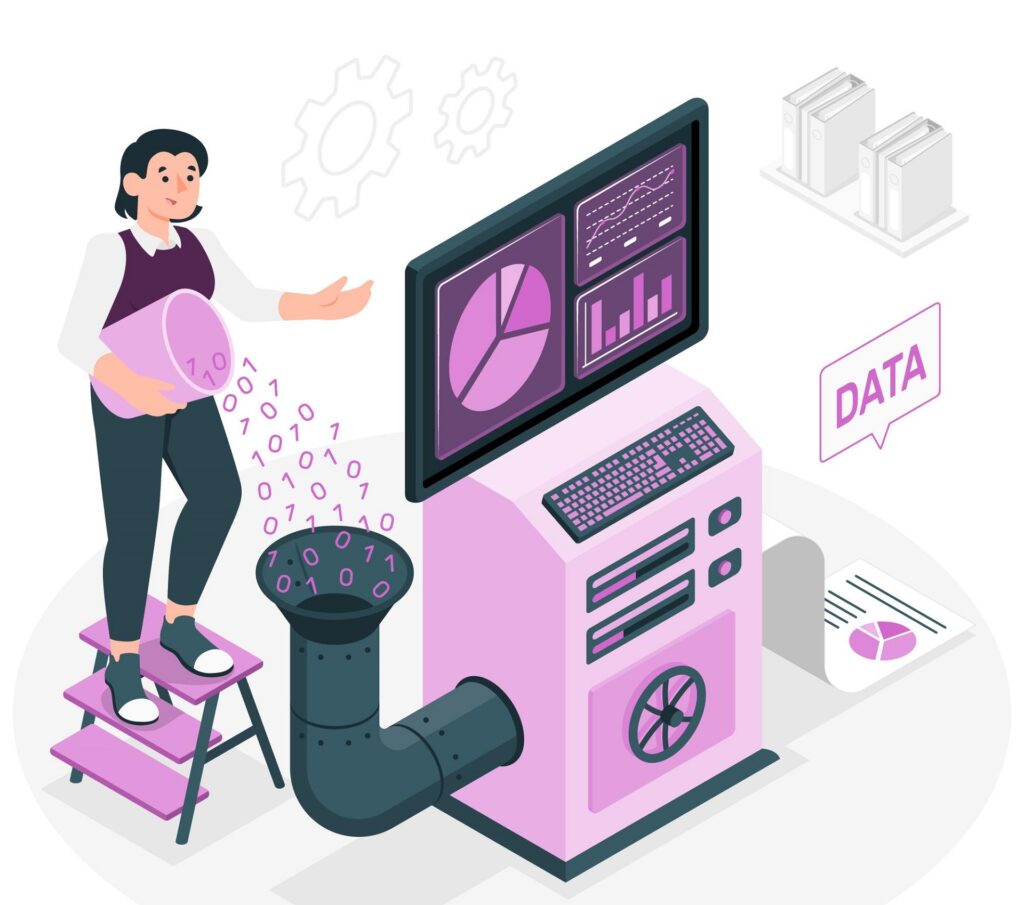From Manual to Intelligent: How AI Is Transforming the Auditing Landscape

In today’s data-driven world, the power of data is transforming various industries and functions, and auditing is no exception. Traditional auditing practices heavily relied on manual processes and sample-based testing to evaluate financial records and detect potential discrepancies. Now, the digital revolution has created a wealth of data, and auditors can no longer rely solely on manual sampling and testing. Data analytics provides auditors with the means to handle this data and perform more comprehensive and precise audits. By leveraging AI capabilities, auditors can automate the data analysis process for auditing, resulting in enhanced risk and control testing for better efficiency, accuracy, and valuable insights for stakeholders.
AI can help auditors to reduce manual workload and shift focus from mundane tasks towards more strategic analysis. AI-driven tools can help identify areas of risk and enable auditors to uncover patterns in data that would have been impossible with the use of manual processes. Auditors will be able to assess data at scale, allowing for a far more comprehensive and accurate view.

Need for AI-Powered Auditing
Auditing involves analyzing large volumes of data, which can be time-consuming and labor-intensive. Also arising data integrity and reliability issues.
Human error is inherent in manual data analysis processes. AI-powered data analysis can significantly reduce errors by applying consistent and objective analysis techniques.
Auditors need to ensure the protection of sensitive and confidential data. Compliance with data privacy regulations, such as the General Data Protection Regulation (GDPR), adds an extra layer of complexity.
Auditing involves analyzing vast amounts of unstructured textual data, such as financial statements, contracts, and regulatory documents. Extracting key information from vast data sets is challenging and time-consuming.
Moreover, data analysis tools may provide valuable insights, but auditors need to apply industry-specific knowledge to interpret the results correctly. AI-powered analysis assists with data interpretation and data visualization to enhance the quality of analysis.
Opportunities AI Offers for Auditors
- Automated Data Analysis: AI algorithms can efficiently analyze large volumes of data, extracting meaningful insights and patterns. Auditors can leverage AI-powered data analysis tools to automate tasks such as data extraction, data cleansing, and data validation. Automation saves time, reduces human error, and allows auditors to focus on interpreting the results and performing more strategic analyses.
- Anomaly Detection and Fraud Prevention: AI algorithms excel at identifying anomalies within data sets. By training AI models on historical data, auditors can develop algorithms that can detect irregular patterns, potential fraud, or suspicious transactions. These algorithms proactively monitor data streams, flagging any deviations from expected norms.
- Natural Language Processing (NLP) for Text Analysis: Auditing involves analyzing vast amounts of textual data, including financial statements, contracts, and regulatory documents. By applying NLP techniques, auditors can extract key information, identify sentiment, and analyze unstructured textual data effectively. This helps auditors gain a comprehensive understanding of the firm’s financial landscape and potential risks.
- Risk Assessment and Predictive Analytics: AI algorithms can help auditors identify and evaluate risks associated with financial reporting and internal controls. The analysis will allow auditors to identify unusual trends, patterns, or anomalies that may indicate potential fraud, errors, or control weaknesses. Risk assessment allows to focus efforts on areas of higher risk, ensuring a more effective and targeted audit.
- Continuous Monitoring and Real-time Auditing: Traditionally, auditing has been a periodic and retrospective process. With AI-powered tools, auditors can now implement continuous monitoring and real-time auditing. This dynamic approach ensures a higher level of accuracy, compliance, and fraud prevention. Saving huge costs in terms of non-compliance and poor decision-making.
- Enhanced Decision-Making and Insights: By leveraging AI in auditing, auditors gain access to advanced data visualization tools and interactive dashboards. With these tools, auditors can spot trends, identify outliers, and generate valuable insights for stakeholders, leading to more informed and strategic recommendations.
- No-Code AI-Powered Analytics: The limited availability of data science and coding skills within organizations has been a significant obstacle to implementing AI and data analytics. The emergence of no-code AI solutions is now making it easier for businesses to overcome this challenge and harness the benefits of automated data analytics.
Requirements for Adopting AI-Powered Analytics
- Establishing a Clear Strategy and Objectives: It includes identifying specific areas in the auditing process where AI can add value. Like data analysis, anomaly detection, or risk assessment. A well-defined strategy helps auditors align their AI initiatives with organizational goals. Ensuring that AI-powered analytics efforts are focused and purpose-driven.
- High-Quality and Relevant Data: The success of AI-powered analytics relies on having access to high-quality and relevant data. Auditors must ensure that the data used for AI models are accurate, complete, and representative of the audit scope. This requires implementing robust data collection, validation, and cleansing processes to address data quality issues. Moreover, auditors need to gather data for their specific auditing needs and ensure that they have access to such data sources.
- Data Security and Privacy Measures: The adoption of AI-powered analytics necessitates robust data security and privacy measures. Ensuring that appropriate safeguards are in place to protect sensitive and confidential information. This includes implementing encryption techniques, access controls, and secure data storage practices. Compliance with data protection regulations is essential to maintain the trust of clients and stakeholders.
- Change Management and Integration: Integrating AI-powered analytics into existing auditing processes requires effective change management practices. Auditors need to assess and address potential resistance to change and get buy-in from stakeholders. Seamless integration of AI-powered analytics into existing workflows, systems, and tools is crucial to maximize efficiency and minimize disruptions.
Start Your AI Transformation Journey with HEXANIKA
No more sifting through endless spreadsheets or struggling with complex data analysis.

With #SmartAudit, say goodbye to tedious and error-prone manual auditing tasks. Our platform leverages AI and machine learning algorithms to automate and streamline your audit processes, saving you valuable time and resources. The dashboard is accustomed to your auditing requirements, providing real-time data analysis and regulatory reporting. Enabling you to identify risks, detect anomalies, and make informed decisions swiftly.
Ready to lead with data-driven auditing? Reach out to us at marketing@hexanika.com.
